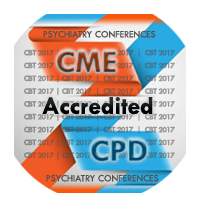17th World Summit on Positive Psychology, Psychotherapy & Cognitive Behavioral Sciences
Toronto, Canada

Meghan Kirwin & Elizabeth K Misener
University of East London, UK
Title: Psychology of Happiness for individual thriving
Biography
Biography: Meghan Kirwin & Elizabeth K Misener
Abstract
Statement of Problem: Women are balancing many roles in their life which can lead to high levels of stress and burnout. Many of these women will not seek mental health support in the form of traditional mental health care. There is a need to explore an effective empowering intervention for this population.
Methodology & Theoretical Orientation: Exploratory research was conducted to observe how resilience and wellbeing can be cultivated through the application of positive psychology interventions. The structure included an interactive learning environment of a small group of six women that meet once a week for eight weeks, with each session lasting 1.15 hours. There were two facilitators guiding the learning and self-exploration process. The facilitators provided the theoretical foundation needed for learners to understand, appreciate and apply three core principals from the field of Positive Psychology; positive emotions, mindfulness and character strengths. With applied models of practice and experiential activities, the group was guided through a process the used narrative practices to explore the impact of the positive psychology intervention on their life. The process demonstrated the importance of positive emotions, mindfulness and character strengths as habits that can be cultivated to support learners cultivate resilience and improve wellbeing.
Findings: The 8-week group model taught the learners the knowledge and applications of scientifically based positive psychology interventions to build resilience and improve wellbeing.
Conclusion & Significance. The model of an 8-week group experience focused on providing the theoretical foundation and application of positive psychology interventions through experiential activities and narrative practices can be a powerful therapeutic model to cultivate resilience and improve wellbeing for women managing many roles in their life.

